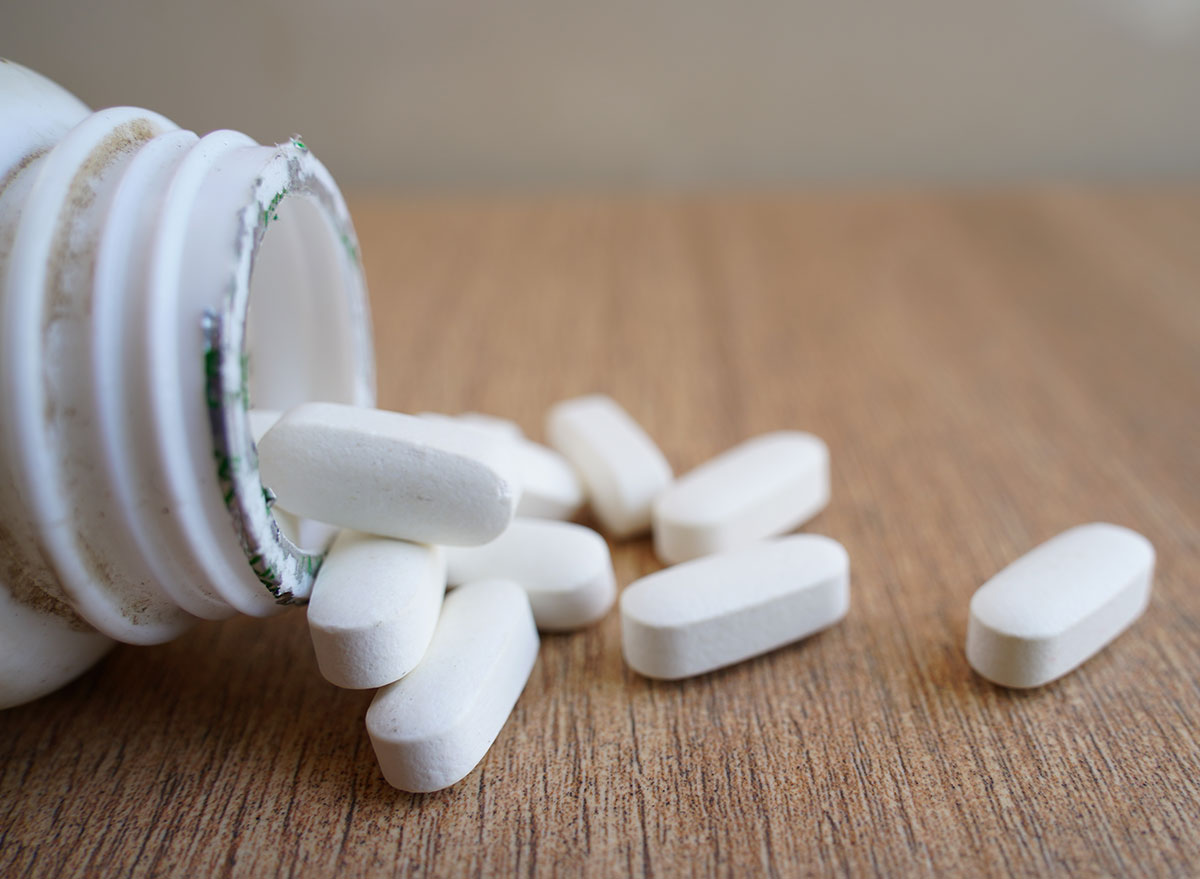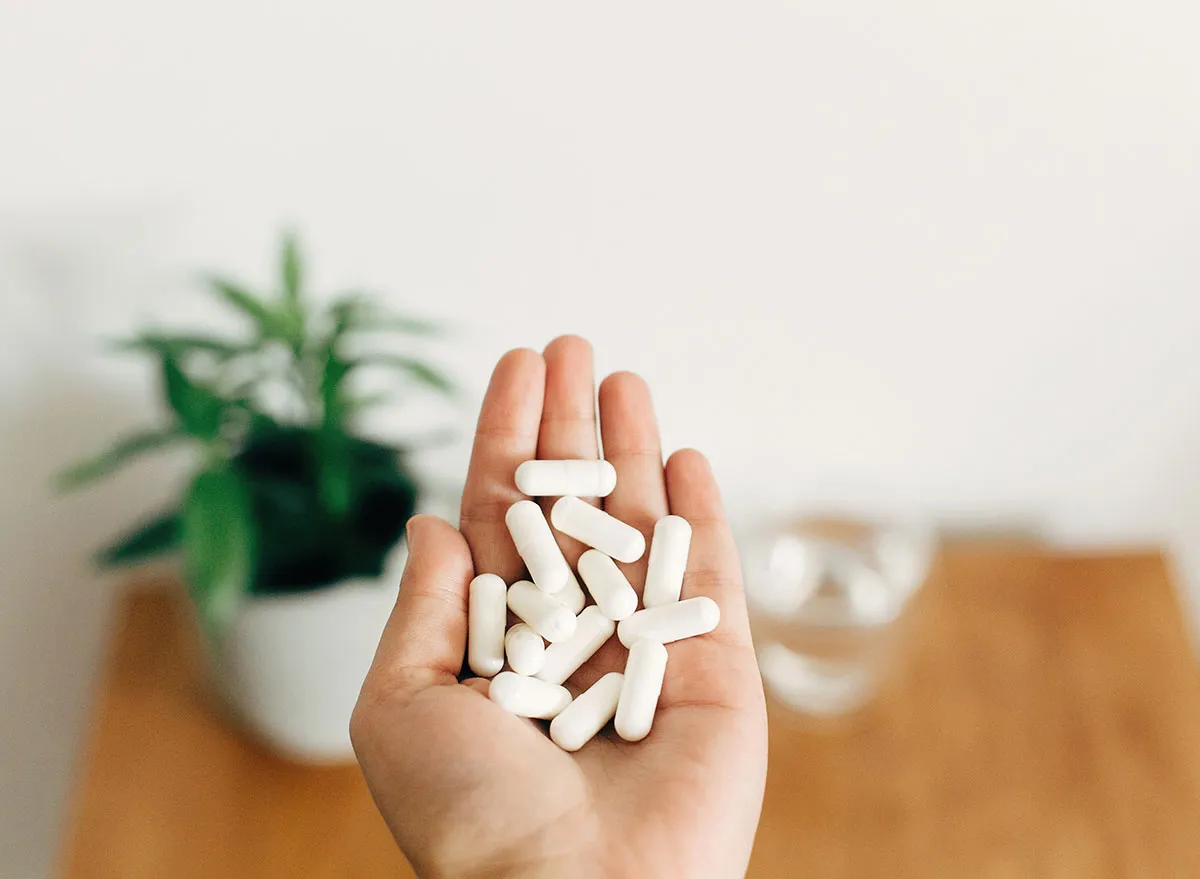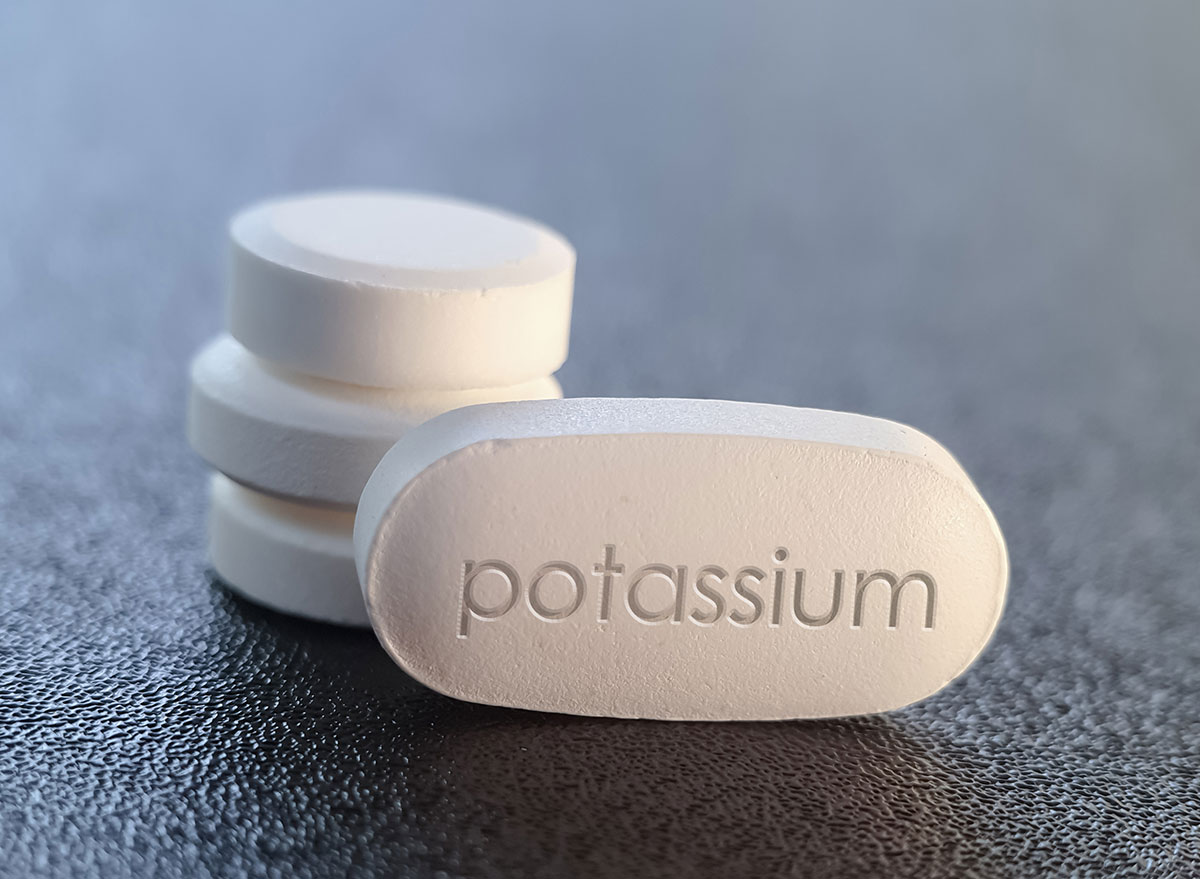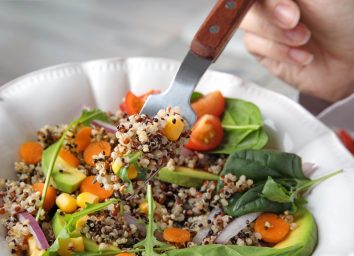Best Supplements for High Blood Pressure, According to Dietitians

A somber stat: Nearly half of adults in the United States have hypertension or are taking medication for hypertension, pet the CDC. That's some 108 million Americans. While you should always consult with your doctor before updating your supplements regime, research shows that certain nutrients may help lower high blood pressure.
Lifestyle changes can make a dramatic difference in reducing high blood pressure, too. "There are many general healthful habits that can help reduce high blood pressure," said Kristin Gillespie, MS, RD, LD, CNSC, advisor for Exercisewithstyle.com. She said these include:
- Consuming a healthy diet that is rich in nutrient-dense foods and conservative in sodium, simple sugars, and processed foods.
- Incorporating regular exercise into your routine
- Getting adequate sleep
- Finding outlets to help reduce stress, such as meditating or practicing yoga
Reducing the amount of alcohol you drink or abstaining from booze completely along with quitting smoking are also important healthy habits (with a slew of other health benefits beyond reducing high blood pressure).
Now, when it comes to your diet and supplementation, learn more about how magnesium, omega-3s, potassium, vitamin C, and calcium may play a role in reducing high blood pressure. Read on, and for more on how to eat healthy, don't miss 7 Healthiest Foods to Eat Right Now.
Magnesium

You may have heard that magnesium may help you sleep and quell anxiety, but it may help keep your blood pressure at healthy levels, too. "There is a growing body of literature supporting the efficacy of magnesium in the prevention and treatment of high blood pressure," says Gillespie. "This is felt to be the result of increased nitric oxide production. Nitric oxide acts as a vasodilator within the body, causing relaxation and widening of blood vessels, increased blood flow, and reduced blood pressure." For more on magnesium, check out 19 magnesium benefits you didn't know you needed.
Omega-3

"Omega-3 fatty acids have various functions in the body, including keeping your blood vessels strong. A reliable source of research suggests that they too may be able to help lower blood pressure," said Shannon Henry, RD, with EZCareClinic, which offers walk-in and online healthcare services for weight loss plans, nutrition/diet therapies, and treatments.
For omega-3s through your diet, seek out fatty fish like salmon and sardines, nuts and seeds, chia seeds, and walnuts, noted Henry. See these: 26 Best Omega-3 Foods to Fight Inflammation and Support Heart Health.
Potassium

"Potassium is widely known for its effect on blood pressure; many studies have supported a link between increased potassium intake (either from food or supplements) and decreased blood pressure," says Gillespie, further explaining that this is due to the fact that potassium works to stimulate sodium excretion from the body, thus helping the blood vessels to relax. It should be easy to get sufficient potassium in a healthy, balanced diet. Pass the bananas, please. And avocados, sweet potatoes, and spinach.
READ MORE: Best Supplements for Sleep, According to Experts
Vitamin C

Who knew this vitamin could potentially help keep high blood pressure at bay? "Research has suggested that those with low vitamin C levels have more of a predisposition toward high blood pressure than those with optimal levels," said Gillespie. "In a literature review of eight studies, vitamin C supplementation was associated with a significant decrease in blood pressure levels. Researchers have suggested that this is because vitamin C acts as a diuretic, excreting excess fluid and salt from the body to ultimately lower blood pressure."
READ MORE: Best Supplements for Reducing Inflammation, Say Dietitians
Calcium

"The human body needs calcium for strong bones and to strengthen blood circulation, muscle contraction, and heart rate," said Henry of the important mineral.
Most people will get all the calcium they need from their diet, said Henry, calling out calcium-rich foods such as milk, yogurt, cheese, leafy green vegetables, and canned fatty fish. It's worth noting, though, that "a 2015 review found that an increase in calcium intake can lower blood pressure, but only a little. The authors realize that more studies are needed before doctors can be sure how it works and how much people should take," Henry added.
Read this next:
- This One Diet May Prevent High Blood Pressure, New Study Says
- The #1 Cause of High Blood Pressure, According to Science
- 13 Worst Foods for High Blood Pressure








